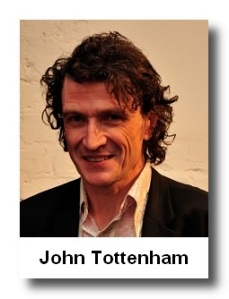READING BY WRITERS TUESDAY MAY 20, 7:00 p.m. to When We Finish.
Violinist Mary Scallen and Flutist Jim Miller perform from 7:00 to 7:30 to welcome the audience.
At 7:30 Featured readers are:
CASS DALGLISH, poet and fiction writer, wrote television news and documentaries as a broadcast journalist. Her books include NIN, Spinsters Ink; SWEETGRASS, a Minnesota Book Award finalist; and HUMMING THE BLUES, Calyx Books. Her book length prose poem is the jazz interpretation of the Sumerian cuneiform signs in Enheduanna’s Song to Inanna, Ancient Iraq, 2350 BCE. Cass was an invited speaker at the post museum session of conference Innana – Live at the British Museum in London. The recipient of many fine awards, she serves as Director of the Augsburg College Creative Writing Program.
MARY ANN GROSSMANN began her career at United Press International in Minneapolis, and moved to Dispatch-Pioneer Press, where she has been women’s editor, fashion editor, women’s columnist, assistant features editor, and books editor since 1983. Recipient of Minnesota Book Awards KAY SEXTON AWARD and TWIN CITIES NEWSPAPER GUILD PAGE ONE AWARD, past president of MINNESOTA REVIEWS, and editor with late husband of four MINNESOTA and WISCONSIN ALMANACS. A life-long Saint Paulite, Mary Ann lives in Cherokee Heights in a money-pit Victorian house that she says “…will keep me at my desk until I die”. She adds, “I have been working at the newspaper so long that everyone in Saint Paul looks familiar to me.”
MIRIAM KARMEL, widely published in numerous publications including BELLEVIEW LITERATY REVIEW; WATER-STONE REVIEW; PEARL DUST & FIRE, PASSAGER; and JEWISH WOMEN’S LITERARY ANNUAL. She is the recipient of MINNESOTA MONTHLY Tamarack Award for her short story, THE QUEEN OF LOVE. Her story THE KING OF MARVIN GARDENS, was included in Milkweed Edition’s FICTION ON A STICK. Her first novel, BEING ESTHER, Milkweed Editions, was published in 2013.
JEANNE LUTZ, poet, grew up on a dairy farm in southern Minnesota, attended the National University of Ireland, Galway, earned her B.A. in English from St Catherine University, spent two years in Tokyo, and lives in Saint Paul. Finalist in the 2013 LOFT MENTOR SERIES FOR POETRY, her work can be seen regularly at LIEF MAGAZINE. Poet Ethan McKiernan says, “Jeanne is a poet of comic irony and a ferociously large imagination. Her poems gallop with inventiveness, inviting the reader to ride along……we leave her work hungry for more.”
MARGARET SHRYER, whose first play KATHARINA von BORA, Runaway Nun, was published in 2013. She performed this one woman show about the wife of Martin Luther at the 2013 Minneapolis Fringe Festival and at Raven Theatre in Chicago in April, 2014. She continues to meet with her writing group (USSS) and is currently researching the life of Abigail Adams. Stay tuned.
FAITH SULLIVAN is the author of eight novels, among them THE CAPE ANN and GARDENIAS. The eighth work, GOOD NIGHT MR. WODEHOUSE, will be published by Milkweed Editions in 2015. Sullivan is also the author of countless brilliant articles and essays. Faith serves on the Board of the Loft Literary Center, which she calls her “home away from home.”
MAY LEE-YANG, playwright, poet, prose writer, performance artist, whose theater-based work includes CONFESSIONS OF A LAZY HMONG; TEN REASOS WHY I’D BE BAD PORN STAR; STIR-FRIED POP CULTURE, and more. Her work has been produced by Mu Performing Arts, Intermedia Arts, MN Fringe Festival, National Asian American Theater Festival, and more. She is the author of the children’s book THE IMAGINARY DAY, MN Humanities Center, and has been widely published in numerous prestigious anthologies. She has received grants and fellowships from the Minnesota State Arts Board, the National Performance Network, the Midwestern Voices and Visions Residency Award, the Playwright Center, the Loft Literary Center, and is 2011 Bush Leadership Fellowship winner.
Readings last just about one hour. Readers will bring books – we have a great book sales table – and will autograph. .
Every Third Tuesday Public At Saint Paul presents: Saint Paul Poet Laureate CAROL CONNOLLY Hosts READING BY WRITERS – free and open to everyone – at the historic University Club Saint Paul 420 Summit Avenue.
Members and Non members are welcome and invited for the optional 5:00 dinner, not connected to the performance, but reservations are necessary – 651-22-1751
Bar is open before, during and after the 7:30 reading…
Filed under: #!!#, Authors / Books / Reviews, Books, Poets n Poems | Leave a comment »








